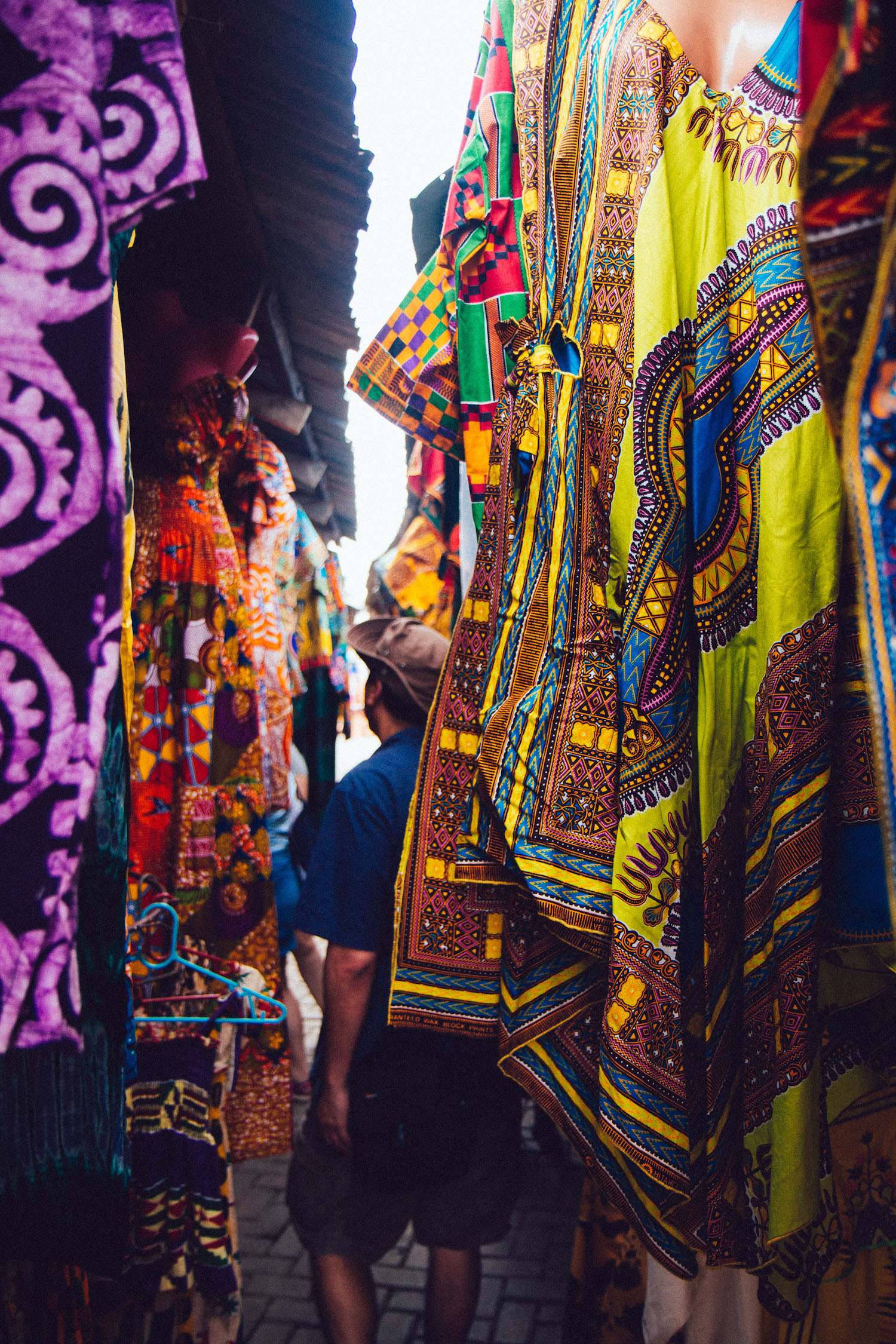Since our arrival in Accra, Ghana, one of the most intriguing aspects of Ghanaian culture is the art of bartering. In order to help you with your bartering skills, I am here to present you a novice’s guide to the dos and don’ts of getting the right price.
Rule #1: Be confident — or at least act as such.
My first experience bartering occurred on our bus in the middle of the street. In Accra, it is normal for hawkers to come right up to your window selling anything from snacks such as fried plantain chips, donuts, and groundnuts (peanuts), to more obscure items like towels, scarves, t-roll (toilet paper) and data for your yam. In Ghana, yam a slang term for a phone with buttons. In this instance my yam needed a refill. I spotted a man selling minutes at a red light. Minutes come in the form of scratch-it cards that you dial in the number to refill your phone. Another tip is to never scratch of the number with your fingernail, as it will take days to get the silver residue out from underneath.
When the man approached me, I saw that he had 10 cidis for minutes. I panicked and handed him the 10 cidis before even beginning to barter. Thinking fast is important, as I probably could have gotten a reduction in price. Even though my first Ghanaian purchase involved no change in price, it was still a step in the right direction.
Rule #2: Use Your Twi
Twi is the most popular native language of Ghana and also a helpful way to get you a bargain. Ghanaians will be astonished when you speak it and will often laugh at you or with you, depending on how fine-tuned your pronunciation is. The most helpful phrase may be mihpacheao tihso (please reduce the price). At the craft market in East Legon near where we are staying, I was able to make friends with a painter named Yusef and bought two paintings for the price of one through the use of mihpacheao tihso and a rapid slapping of my hand to my palm. He seemed thoroughly amused and lowered the price for me.
Another helpful phrase is mihpacheao tohso (please add more). This phrase is commonly said at the end of bartering and roughly translates to please give me a gift. At the nature center I was able to get an extra postcard that had cloth artwork on it as a gift at the end of my bartering.
Lastly, don’t forget to greet the seller by saying wu hu te sein (how are you doing). During our Twi class, our teacher told us that by not greeting a Ghanaian, you are insinuating that they are a piece of wood. This is a lesson that will not only be helpful in Ghana, but in life in general.
Rule #3: Walk Away
The tactic that I have found most useful when bartering for overpriced items is to walk away. When you show interest in an item, begin bartering, and then walk away you will usually get a more reasonable price. And don’t forget that this is also an important tactic when trying to find a taxi. Seeing that our U of O group likes to travel together, it is difficult to reduce the price when the cab driver sees 14 obrunis (foreigners) together. However, once our pack begins to move out, the cab driver reluctantly lowers the price.
Rule #4: Don’t Worry
Lastly, it is important not to forget that the price of one cidi (Ghaianaian currency) is worth around 25 cents. Spend frugally, but also don’t let the price keep you from a swanky kente cloth backpack!

Fabric printed with traditional kente cloth patterns makes a great gift!




Comments by jaclynr